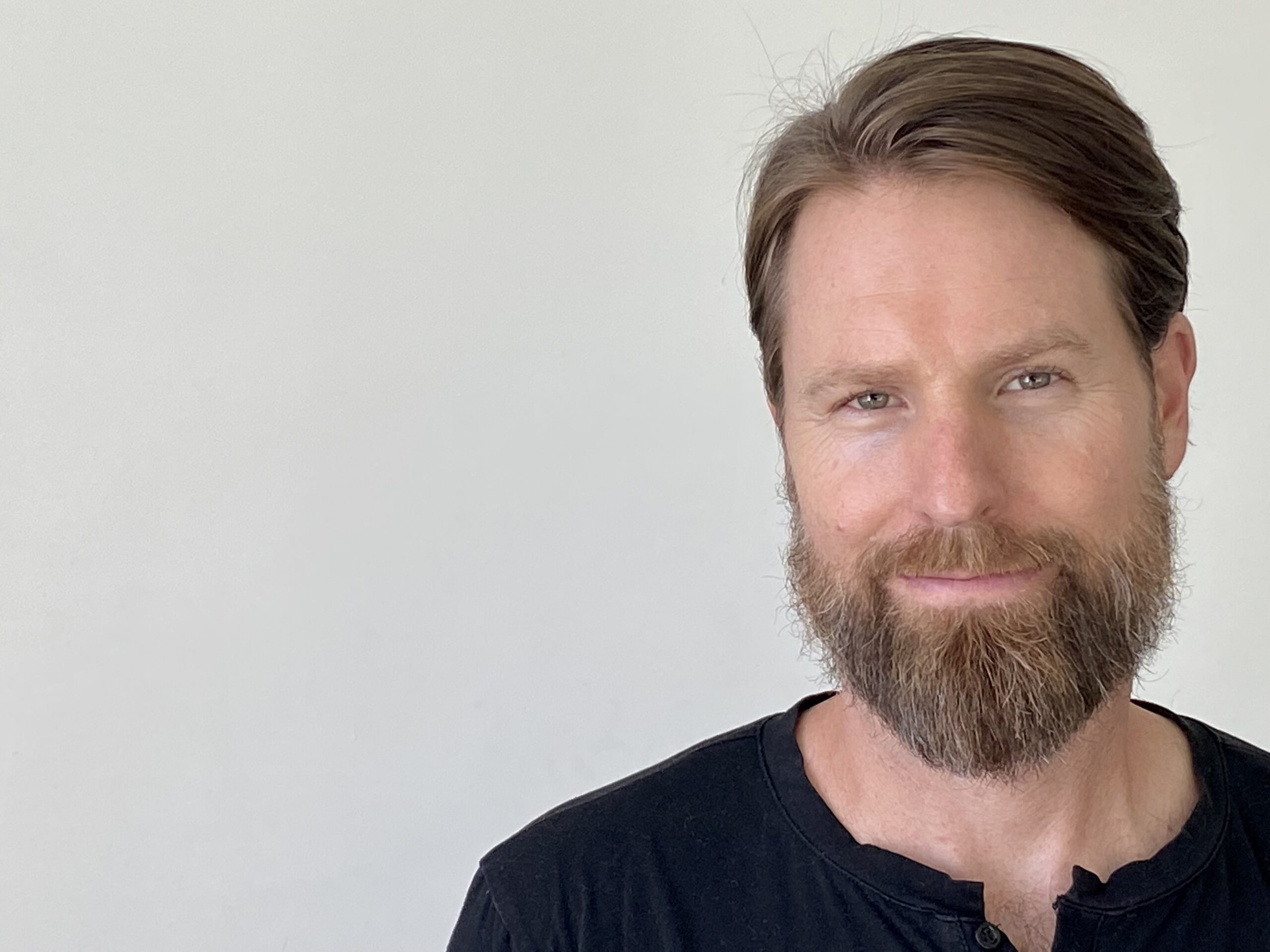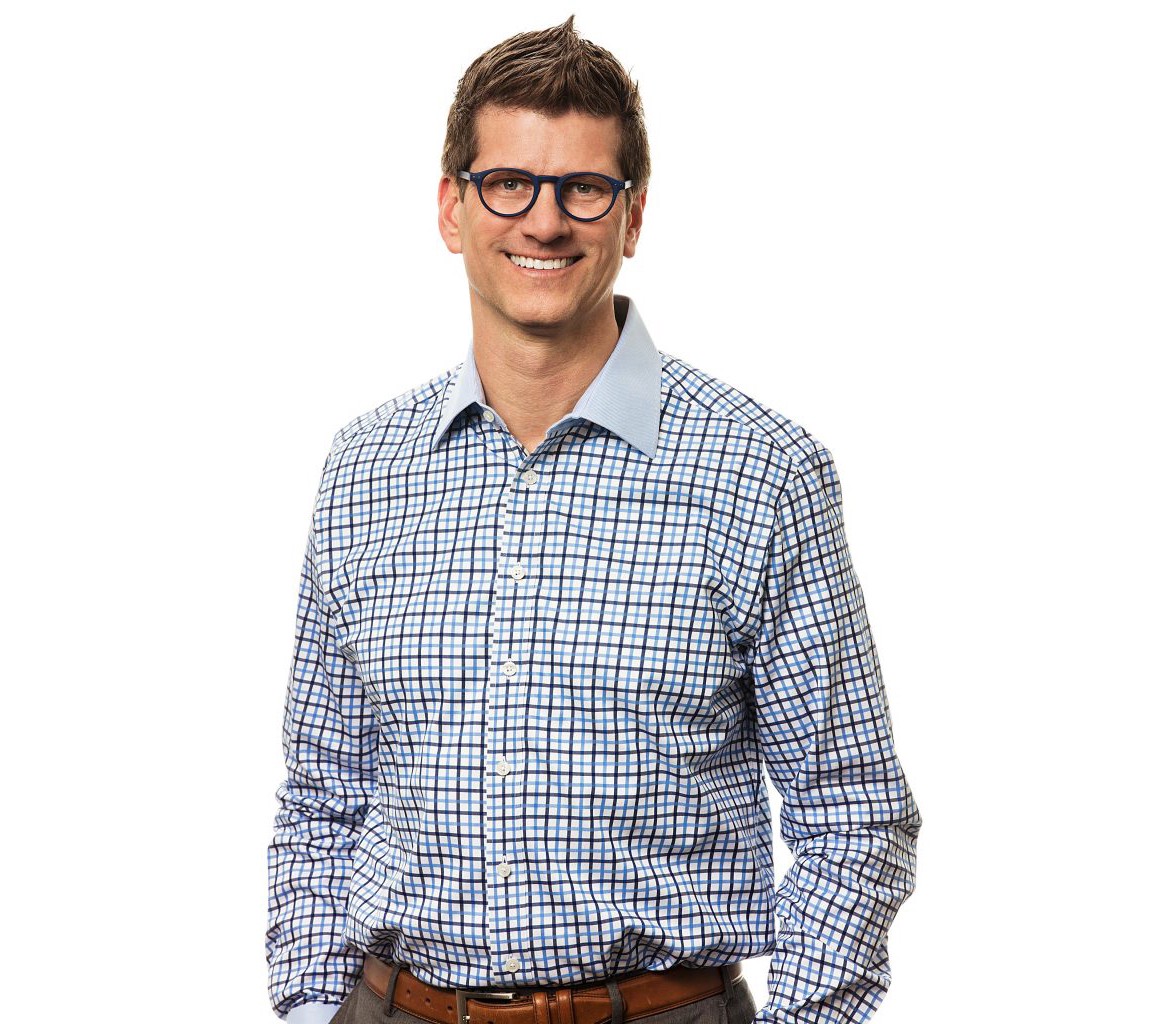The Importance of Mentorship with Scott Miller
Does a mentor need to be someone you’ve met, or can they be anyone? Scott Miller shares his perspective on this as well as the importance of mentorship and the impact it can have on your life!
Listen to us On
About the Episode
LifeBlood: We talked about the importance of mentorship, why knowing information isn’t enough to succeed in today’s world, how to deal with setbacks and rejection, and how to do the work you want to do with Scott Miller, Executive Vice President of Thought Leadership at FranklinCovey, best-selling author, podcaster, speaker and coach.
Listen to learn the difference between being effective and being efficient and when it matters most!
For the Difference Making Tip, scan ahead to 20:05
You can learn more about Scott at ScottJeffreyMiller.com, Twitter, Facebook, Instagram, YouTube and LinkedIn.
Thanks, as always for listening! If you got some value and enjoyed the show, please leave us a review wherever you listen and subscribe as well.
You can learn more about us at MoneyAlignmentAcademy.com, Twitter, LinkedIn, Instagram, Pinterest, YouTube and Facebook or you’d like to be a guest on the show, contact George at [email protected].

George Grombacher
Lifeblood Host

Scott Miller
Guest
Episode Transcript
Come on
Scott, are you ready?
Scott Miller 0:14
George? I am ready.
george grombacher 0:15
I like it. I’m ready. The people are ready. Let’s go. Welcome to Life flooding Gage. This is George G. Our guest today is Scott Miller. He is the Executive Vice President of thought leadership for Franklin Covey. He’s a keynote speaker and number one best selling author, a podcast host. He is the creator of Ignite your genius career coaching and the mess to Success book series. His most recent book is master mentors 30 transformative transformative insights from our greatest minds. Welcome, Scott.
Scott Miller 0:44
George. Thank you. Glad to be here. Thank you for the spotlight.
george grombacher 0:47
excited to have you on tell us a little bit about your personal life some more about your work and why you do what you do.
Scott Miller 0:53
Also, I live in Salt Lake City, Utah with my wife Stephanie and our three young sons that are seven, nine and 11. So if you happen to hear a C a flyby, that’s pretty common is there around this morning, I can he said I have a 25 year associate with Franklin Covey company I host what is now the world’s largest weekly leadership podcast. I write a column for each magazine every week. I’m writing and speaking frequently I host a book club on book club.com most of my time is spent corralling these three young men and trying to turn them into gentlemen and otherwise, not. So gentlemen.
george grombacher 1:32
I appreciate that. So 11, nine and seven working to create gentlemen and create leaders out of them. Is it harder than you think to create leaders out of your own kids or strangers, Scott?
Scott Miller 1:49
Oh, probably strangers because I’m able to inculcate in these three young men. The values that we want how we treat people, they see us treating people, it’s probably harder. It’s probably harder. More challenging in terms of always being the model, right. Dr. Covey, our co founder used to say Be a light, not a judge be a model, not a critic. So with the stranger, you’re not always on camera, so to speak with your children, you’re always on camera. So maybe it’s more challenging for me, but I think it’s more impactful for them to be able to see how I respond to things and how I react, hopefully, hopefully in the right way. Most the time.
george grombacher 2:27
Yeah, yeah, I appreciate that. So I am, I’m a passionate mentor. I recognize how important having a positive role model and a positive mentor can help people along the way, what was the motivation for for the book?
Scott Miller 2:45
Well, so as I mentioned, like you I’m privileged to host a large podcast at ours hits about 7 million people each Tuesday. And like you, I’m honored to interview a wide variety of great guests, celebrity CEOs, best selling authors, business Titans. And after the first hundreds of episodes, George, I realized there’s so much great nuggets, there’s so many great insights here oftentimes shared off camera right before we went on the interview or gesture we went off. So I teamed with HarperCollins, and wrote this book master mentors, where I picked 30 of our first guests, not the first 30, but third of our first 100 guests, with their permission wrote a single transformative insight that they shared on or off the podcast, and I expanded on it in a broader book, because I think everyone needs a mentor. Everyone should be a mentor. And I define mentorship a bit differently, I don’t think you have to formalize it, I think you can, like me, have many mentors you’ve never met before. I have lots of mentors that already know I’m alive. I follow their podcast, or I read their books, I hear them speak on stages, and I absorbed their information voraciously and try to apply it into my life. So I wanted this book to provide access to these 30 people from all different walks of life, to help transform people’s own lives, perhaps differently by mentoring them through, hopefully, what is a funny, swift and easy read?
george grombacher 4:08
Nice, I appreciate that. I think that that’s a cool idea that just because I may never meet this person, and perhaps this person’s not even alive. Or maybe they maybe they weren’t even a real person ever. That doesn’t mean that I can’t take extremely important lessons and and apply those in my life. So tell me a little bit about what when when I open the book, I’m obviously going to be hearing stories about these people. But what are you hoping it does? Is it like a recipe is Is it a playbook?
Scott Miller 4:46
Yes. And yes, I think it’s going to be a different book for every different reader. It’s fairly episodic. In fact, it’s why George one of my first publishers, who was a very big champion of mine passed on it. They thought it was too episodic. They wanted it to all be about Call for all be about leadership or have some kind of read thread, I don’t want to do that I actually want it to be different for each person for each reader. So in one chapter I interview a world renowned neuroscientist and psychiatrist and another interview, another famous marketing expert, or a branding expert, or someone who perhaps that can challenge you on your identity or your emotional intelligence. So, it’s meant to hit different people differently. What I wanted to do is transform people’s lives. These ideas are oftentimes quite simple. But as Dr. Covey, the author of the book, The Seven Habits of Highly Effective People would say common knowledge isn’t common practice. Actually, I think Voltaire said that. But what Dr. Covey said was to know but not to do is not to know. So I hope that readers find this book to hit them exactly where they are, whether they’re just coming out of a relationship, whether they’re a new parent, or perhaps they’re a new leader of people, perhaps they’re a new entrepreneur have a side hustle, or they’ve lost someone dear to them. And the pandemic, they’ve had a setback, perhaps they’re gearing up for a leap forward, this book is going to I think, change your mindset, change your skill set and help you develop a new toolset to take on the new the new world that is that we’re living in post pandemic.
george grombacher 6:16
Yeah, I appreciate that. I think it sounds great. When you reflect back on getting turned down by the first company brought it to what, what, what sort of, do you feel about that? Or think about that?
Scott Miller 6:30
I yeah, I, I bruise hard, but I heal fast, like really fast. And so I I don’t see, rejection kind of isn’t even the thing I associate with I just move on like your loss. I’m kind of one of those just barely arrogant enough guys to say, well, your loss, you’ll regret that because this is gonna be Chicken Soup for the Soul. The fact of the matter is I’m writing 10 volumes. So Volume Two comes out next year 2022, with 30 new people, and now writing volume three, so they’re gonna miss out on a 10 volume series that’s going to be externally successful. So I do like the phrase, sometimes a disappointment, turns into an appointment. So immediately, when I face something that is challenging to me, I pivot to say, Okay, so that’s not going to happen. Now what? That’s not going to happen, what do I do with these extra 500 hours that I have, with my time because I didn’t get this TV program or this radio, I don’t tend to see failure as anything. In my life, I see challenge as opportunity, okay, that’s not going to happen. So now what I pivot, sometimes too fast, but generally very fast.
george grombacher 7:44
Challenge as opportunity. And then when things don’t go the way that you wanted, necessarily, it’s an opportunity to turn it into something that you do want.
Scott Miller 7:56
Daily, right? I mean, it happens multiple times a day, especially I find the more I want something, the less likely it is to happen. Now I’m pretty, you know, I’m pretty in control of my life. But one of my early leaders at the Franklin Covey company taught me the harder you hold on to metaphorically in your fist, the tighter you crush a little bird, not literally that metaphorically, we’re gonna crush it, the more you open it and release it, it may fly, but it also may come back to you. So if I tried to advocate for something to happen, would it be on my behalf or even on someone else’s behalf I’ve learned to try to insist a little less, to market it a little bit less, I pull back a little bit, I have to know when to play big and when to play small, right and when to use all my jets and when to hold back a little bit. So I don’t seem too anxious or too eager. Because sometimes it isn’t the right decision. I think it’s right for me. And in fact, someone else saves me from myself. That’s a great mentor is someone that can see ahead of you a little bit and say, You know what? Not sure this is the right thing for you. Let’s ask some more questions and talk about it.
george grombacher 9:06
That is a letting things come to me, Scott, that’s something that when I would hear that I’m like, No, I just I run through walls I am DOER of things, you know, so that that’s so hard for me. And if I’m being honest, it’s still something that that it’s not the easiest thing I think, sort of I don’t know if it goes against my nature, but it certainly goes away goes against the first 40 years of my life Give or take.
Scott Miller 9:31
I can completely relate we have we share that personality trait. I’m a very productive active person. I get things done if I want it I go and I get it. I don’t take it from you. I just go build it. Right i i love turning nothing into something. And as I have matured and perhaps aged I’m older than you. I have realized that just because you want something doesn’t mean you should have it or it’s the right timing for you. Sometimes there is value in waiting or Even a deprivation to really get clear on is that the right thing for me is there have perhaps something better for me, not so much a thing, but an opportunity, a relationship, a partnership and alliance a client. I kind of feel like oftentimes, if it’s meant to be a battle happen now, that doesn’t mean you could just like, you know, let it go, right. I very much create my future. But there’s a little bit of serendipity open to value that comes I’ve learned from many of these mentors, maybe don’t try less. Just take a breath, sit cogitate on it. See if it comes your way. And if maybe we you know, watch you else’s chasing, make sure you’re positioned well to, you know, when what you need. I am trying a little bit hard. I’m not. And I’m about to wait phrases, but you get the point, right? It’s I will outwork anyone. But now I am not trying to voraciously gobble up everything in front of me, I have an abundance mindset. I believe there’s enough for everyone. But I’d be more deliberate in the projects that I take on, and the clients that I hire, the projects that I am passionate about.
george grombacher 11:15
Yeah, I appreciate that. I think that there’s a lot of wisdom there. Do you have a Do you have a process or practice a habit of when you get an opportunity, or you get an offer of just for example, I’m going to wait 24 hours before I actually give somebody an answer, even though you’ve already made up your mind or something like that.
Scott Miller 11:38
I wish I had a process that would sound very wise. But I thought I am I will tell you I am a fairly impulsive person. I’m a rather impetuous person, I make decisions, sometimes too fast. That has generally served me very well in life. I’m that kind of person. I go on vacation in Europe. And I see something and I store, I buy it immediately. I don’t shop around for five countries and the good of the planet wish I’d bought that souvenir right, my wife will try to get it for you know, $2 Less? No, if I see it, I want it, I buy it. Right? At a briefcase $100. Right, or a pair of slippers. Right? It’s sort of like it’s, you know, a car, although I’ve done that on occasions, too. But I am I am trying less to control other people. Here’s a good example, I have a fairly, a sizable opportunity with a client right now. They asked for my proposal on last Friday. I gave it to them. They wanted some rewrites on Monday, I did that. They said the meeting was on Tuesday to make a decision. It is now you know, entering a couple of days after that. They told me they would let me know by Friday. So the old me would have been pinging them. How did it go? Do you need more information? How can I help you? I need to gear up. I have other clients I’m saying no to potentially. And now I’m just letting it sit. And I’m kind of rolling it out. In my mind. I think it will come my way. But I’m already thinking about other ways in which I might deploy that same energy if they come and say no, historically, I might have really fixated on it, and been focused on it and started even working on it hit the ground running only to perhaps be disappointed if it didn’t come in, and not kind of just ruled it out. I think it will come in, but I’m not even gonna think about it. Really not even thinking about it for these next two or three days becomes a comes it doesn’t it doesn’t. And I will find an eye appointment to do something else. If in fact, this turns out to be a disappoint. I think probably it’s also because I’ve increased confidence level in my skills. And in my books in writing and projects. My experience, someone else will find that value, likely even better at perhaps a higher rate. I’m calling that way a little bit, you’d think at 53. I haven’t learned this earlier, but it’s just kind of coming to
george grombacher 14:04
well, it’s fascinating, right? It’s, you know, it’s like being able to find a find the right mentor or the right teacher, when somebody is ready for it, then then then then it shows up or when you’re ready to actually change the way that you behave in a certain situation, then then you probably find that that some of these things come to you.
Scott Miller 14:25
In fact, that’s the book right? It’s all these mentors, these 30 minds have had some significant influence on me Seth Godin, Dan Pink, Liz Wiseman, Stephanie McMahon. Stedman Graham, if Devin Graham is a great example, right? He’s a well known author and entrepreneur, known to many as the 30 year life partner to Oprah Winfrey. I mean, can you imagine creating your identity outside of the quote being married? Maybe not legally, but in life to Oprah Winfrey and these, his mentors have taught me like Seth Godin. is a good example of a famous marketer. Friend of mine. He taught me the difference. George between being fearless and being reckless. I spent much of my life masquerading as being fearless. When in fact, I was often being reckless with my own brand my own reputation, fearless with my comments about your appearance or your competence, when in fact, I was being reckless with your feelings with your emotions. And it’s kind of pithy, light, things like that to ask yourself, Am I being fearless? Or am I being reckless? General McChrystal for Star Army General, of course, you’d lead the American invasion in Afghanistan. I write about him being on the right side of history with some other issues in his life, in fact, a picture of Robert E Lee, that his wife had given him. So I asked myself now all the time, am I on the right side of history as relates to my voting, the elections, the pandemic, the vaccine, my parenting my books. I write a whole chapter about gratitude. Which the word often we use all the time. But I interview someone, a famous man who has no arms and no legs. His name is Nick phooey. Church is no arms and no legs and you have not met, experienced gratitude until you are in Nick’s physical presence and realize, reflexively, how subconsciously you reach for water and scratch your hair and put your glasses on. And the book is like that it’s sort of Chicken Soup for the leadership soul. You could pick up a chapter and read chapter 14, and then go to 22. And go back to two, I wrote it very fast, very easy, very breezy. Three or four pages per chapter could read one a night for three days. I think one of these if not many of these will hit you at a special spot that could transform a relationship and decision. mindset you have in your life.
george grombacher 16:50
Yeah, I’m super excited to read it. And I think that that, what a wonderful thing to be able to take a step in. Step inside these people’s worlds just just briefly to learn from from what they’ve gone through. And just talking about the people you just highlighted. What What wonderful, diversity and just so much, so, so much to learn. So, so 10 More 10 More books in the series. Do you love writing? Or is it this is I really need to block the time. Tell me a little bit about that.
Scott Miller 17:26
I don’t love writing, but I don’t dislike it. I you know, 25 years at the Franklin Covey company four years at the Walt Disney Company before that. So you’re now a 30 year career where I spent a lot of time writing corporate communication, right as releases and on web copy and all kinds of business correspondence for in a report. So I’ve been writing my entire life more kind of corporate writing, business writing. About four years ago, I started writing a weekly blog on LinkedIn where I have several 100 of them now I write a blog every week. Now for the for the podcast, I write a column for Ink Magazine. So I’ve started to write in this direction. I published three other best selling books that are that are free, really funny and witty, I tend to be a very kind of raw writer I write with my mind, I write like I speak. Not everyone does that for good or bad. I do block time every morning when I’m writing a book I write from four to 5am. Every day, seven days a week and the book is done. That’s when I write. And it takes a lot of discipline. But then I usually can write about a chapter. In about 90 minutes, I usually get it metaphorically to use a football term to about the five yard line. I then send it to my editor. ghostwriter. And it’s uh, he he and he usually takes it to the endzone sometimes it’s on the one yard line. Sometimes he kicks it back to the 20 yard line because it sucks. It says yeah, I think you’re thinking about but it’s the wrong story. Scott, here’s what I think you want to consider. So he oftentimes, you know, kicks the ball back to the other teams in zone. I got to run it all the way back. So but I don’t dread it. I also don’t punish myself. I’m on chapter three, right? And it’s, you know, Matthew McConaughey, I’m writing about Matthew McConaughey. And it’s not coming to me. I don’t get myself I just stop. And I skip to four or skip to 12 and write about somebody else. But then I think about Matthew McConaughey was the interviewee on the guests and he’ll being one of the books I think about him for a couple of days. And then it comes to me when I write about it later on, so I’m willing to have my writing style kind of follow my creativity and not force it. I don’t really have writer’s block. I did have writer’s block one time for about three or four weeks. I just couldn’t get clarity on it one day when one kind of month almost. And then I wrote free a bit but to answer your question, I don’t dislike it. And I am disciplined about how when I write
george grombacher 19:58
I love it. I appreciate you sharing that Scott, people are ready for your difference making tip. What do you have for them?
Scott Miller 20:05
You know of all the things that I learned from the themed Dr. Stephen R. Covey, who wrote, of course, the book The Seven Habits of Highly Effective People. Well, while I was the Chief Marketing Officer talking to press weekly for years, they often wanted to interview me about his famous book, The Seven Habits of Highly efficient people. I was correct them no, no, he wrote the book, The Seven Habits of Highly Effective People, they sound similar, but being efficient and being effective are highly different terms. One is not better than the other, they’re just different. You can tell I’m a fairly productive, active person, a very efficient person, it is the hallmark of my success in my career, I get stuff done, probably faster than most people do. The problem is George is when I try to move that efficiency mindset into my relationships. Because you cannot be efficient with people you can only be effective. So for those listeners, or viewers that can relate to my sense of productivity, and always on the move and kind of checking things off and moving things on. That’s a great skill. Use that with unloading the dishwasher and mowing your lawn and taking your kids to soccer and some email and social media, but you’re very mindful, be very cognizant that you cannot be efficient with people, you need to slow down and be really almost pragmatic around flipping out of an efficiency mindset and moving into an effectiveness mindset or what does that look like and feel like differently to both you and the other person to quote Dr. Covey with people fast, is slow and slow, is fast. So know when to be efficient and know when to be effective.
george grombacher 21:53
I think that that is great stuff that definitely gets a Come on. Come on. Scott, thank you so much for coming on. Where can people learn more about you and engage with you and where can they get a copy of master mentors?
Scott Miller 22:06
So mastering mentors is now number one new release on Amazon. You can buy it on all your favorite book, retail sites, including all of your favorite bookstores everywhere. You can visit me at Scott Jeffrey miller.com where all my books columns podcast blogs are held. And also connect to me on every social media platform LinkedIn, Twitter, Instagram, Facebook, Tik Tok YouTube, I am their lead to have you connect follow up and in and connect with me.
george grombacher 22:36
Love it. Well, if you enjoyed this as much as I did, just get your appreciation and share today’s show with a friend who also appreciates good ideas pick up a copy of master mentors 30 transformative insights from our greatest minds wherever you buy your books, go to Scott Jeffrey miller.com. Check out all the great stuff he’s working on read his ink column, read his LinkedIn blog and find him on all the social media even Tik Tok. I love it. Thanks. Good Scott. Thank you, George. Thanks. And until next time, keep fighting the good fight. We’re all in this together.
Transcribed by https://otter.ai
More Episodes
One Million Dollars: How to Get that Money
One Million Dollars: How to Get That Money Is one million dollars a lot of money? How much money is a lot? How much do you need to walk away from full-time work? Here's how to make a plan. About the EpisodeIs one million dollars a lot of money? How much money is a...
Shame On You: Overcoming Money Shame
Shame On You: Overcoming Money Shame When was the last time you told or thought to yourself, "Shame on you?" If it was about money, here's how you can overcome those feelings.About the EpisodeWhen was the last time you told or thought to yourself, "Shame on you?"...
Financial Literacy for Kids
Financial Literacy for Kids Financial literacy for kids is an important and challenging undertaking. We all want to help young people succeed, but how best to do it? George talks about what some governments are trying to do, and what you can start doing immediately...
Stop Saying I Hate Money
Stop Saying "I Hate Money" When you say, "I hate money," you're setting yourself for personal financial trouble. If you feel that way, it's time to reprogram your thinking.About the EpisodeHave you ever said or felt, “I hate money?” It’s easy and common to feel that...
Understanding Employee Financial Wellness
Understanding Employee Financial Wellness What is employee financial wellness, really? Is it a 401(k) open enrollment meeting? A powerpoint about asset allocation? It's all about changing behavior.About the EpisodeWhat is employee financial wellness, really? Is it a...
Money Stress is Killing Me: What to Do
Understanding Employee Financial Wellness What is employee financial wellness, really? Is it a 401(k) open enrollment meeting? A powerpoint about asset allocation? It's all about changing behavior.About the EpisodeWhat is employee financial wellness, really? Is it a...
Stop Trading Stocks
Stop Trading Stocks Should you start or stop trading stocks? Is it possible to get rich doing it? George talks about the realities of wealth building and when it’s time to invest in passive versus active investments.About the EpisodeShould you start or stop trading...
Quick Tips for a Refreshing Home Makeover
If you're looking to breathe new life into your living space, then you've come to the right place. Reviving and refreshing your home can be a fun and rewarding experience, and it doesn't have to break the bank. Whether you're looking to sell your property or simply...
How to Live a Purpose Driven Life
What is a purpose driven life? “The purpose of life, as far as I can tell… is to find a mode of being that’s so meaningful that the fact that life is suffering is no longer relevant.” - Jordan Peterson Peterson goes on to talk about how meaning and purpose is found in...
Join the show.
Interested in being on the show? Tell me a little bit more about you and what you’d like to talk about!














